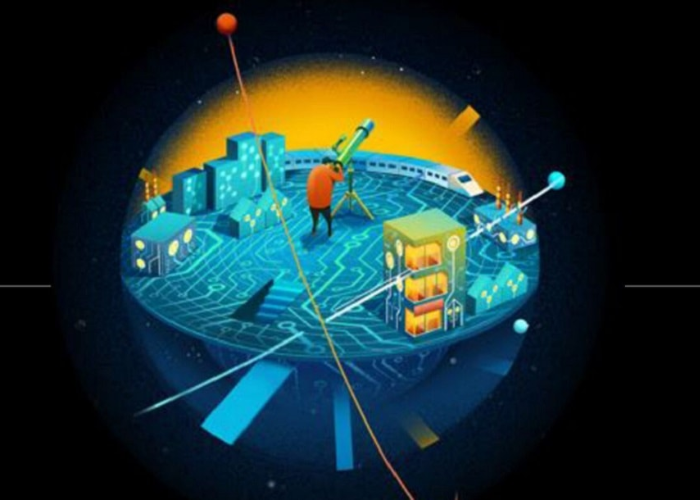In the fast-paced realm of technology, where change is constant and innovation is the driving force, the landscape is ever-evolving. With each passing day, new breakthroughs are shaping the way we live, work, and interact with the world. As we stand on the cusp of a new era, it’s imperative to explore the horizons of technology and delve into the potential of the next generation of innovations that promise to reshape our future.
The Acceleration of Technological Advancements
The pace of technological advancements has been nothing short of astonishing. Over the past few decades, we have witnessed a digital revolution that has transformed every aspect of our lives. From the rise of smartphones that put the world at our fingertips to the proliferation of artificial intelligence (AI) that empowers machines to mimic human cognitive functions, the technological trajectory has been one of exponential growth.
As we venture into the future, the rate of innovation shows no signs of slowing down. Concepts that were once confined to science fiction novels are becoming a reality. For instance, quantum computing, a field that harnesses the principles of quantum mechanics to perform calculations at speeds previously deemed impossible, holds the potential to revolutionize industries ranging from cryptography to drug discovery. With companies like Google, IBM, and others investing heavily in quantum computing research, the horizon of possibilities is expanding rapidly.
Artificial Intelligence: From Automation to Augmentation
Artificial Intelligence has been a focal point of technological advancement in recent years. AI-driven technologies have transitioned from automating routine tasks to augmenting human capabilities in unprecedented ways. Machine Learning algorithms are powering recommendation systems, personalized content delivery, and predictive analytics, thus enhancing user experiences across various platforms. In the healthcare sector, AI is aiding in disease diagnosis, drug discovery, and even surgical procedures, ushering in a new era of precision medicine.
Furthermore, the convergence of AI with other cutting-edge technologies such as robotics and the Internet of Things (IoT) is enabling the development of intelligent systems that can adapt and respond to real-world scenarios. These synergies are poised to reshape industries like manufacturing, logistics, and agriculture by optimizing processes and minimizing human error.
5G and the Connectivity Revolution
The rollout of 5G networks is poised to be a game-changer in the tech industry. While 4G revolutionized the way we use mobile devices, 5G promises to take connectivity to an entirely new level. With significantly higher data speeds, lower latency, and the ability to connect a multitude of devices simultaneously, 5G opens the door to innovations we can scarcely imagine today.
One of the most anticipated applications of 5G is the proliferation of the Internet of Things. As billions of devices become interconnected, the scope for smart cities, autonomous vehicles, and remote healthcare services expands exponentially. Imagine a world where traffic congestion is minimized through real-time data exchange between vehicles and traffic signals, or where doctors perform surgeries on patients located halfway around the world with the assistance of real-time haptic feedback.
Biotechnology and HealthTech Innovations
Tech horizons also extend into the realm of biotechnology and HealthTech. CRISPR-Cas9 gene editing technology, once considered the stuff of science fiction, is now a reality that has revolutionized genetic research and the potential for treating genetic disorders. Personalized medicine, fueled by advances in genomics, is becoming more attainable, allowing healthcare professionals to tailor treatments to an individual’s unique genetic makeup.
Virtual reality (VR) and augmented reality (AR) are making inroads into healthcare as well. Surgeons are using VR to simulate complex procedures before entering the operating room, enhancing their skills and improving patient outcomes. AR is being utilized to provide real-time information to healthcare professionals during procedures, reducing the risk of errors and improving overall patient care.
Sustainability and Green Tech Innovations
The next generation of innovations isn’t solely focused on digital transformation; it’s also about addressing the pressing challenges facing our planet. The tech industry is increasingly turning its attention towards sustainability and green tech solutions. From renewable energy sources such as solar and wind power to advancements in energy storage and distribution, the tech sector is playing a pivotal role in reshaping the global energy landscape.
Smart cities, another facet of green tech, leverage data and technology to optimize resource usage and enhance the quality of life for residents. Energy-efficient buildings, intelligent transportation systems, and waste management solutions are just a few examples of how technology is fostering sustainability on an urban scale.
Ethical and Societal Implications
As we explore the frontiers of innovation, it’s important to consider the ethical and societal implications of these advancements. Issues such as data privacy, algorithmic bias, and the potential for job displacement due to automation are all topics that demand thoughtful consideration. Striking a balance between technological progress and the well-being of society requires collaboration between technologists, policymakers, and ethicists.
In Conclusion
The next generation of technological innovations is not a distant dream; it’s a reality that is rapidly unfolding before our eyes. From AI-driven transformations to the connectivity revolution of 5G, from biotechnological breakthroughs to green tech solutions, the horizon of possibilities is limitless. As we embark on this journey into the future, it’s essential to approach these innovations with a blend of curiosity, responsibility, and a commitment to harnessing technology’s power for the greater good. By embracing the potential of these innovations and addressing their challenges, we can pave the way for a future that is both technologically advanced and ethically grounded.




